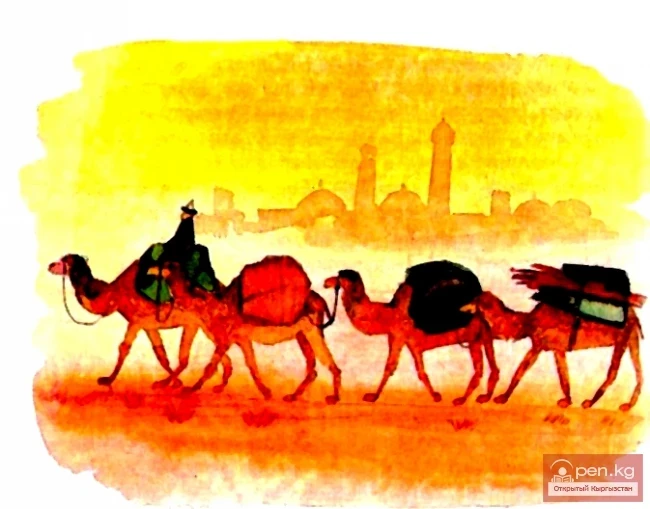Tübekeyka
The story took place when khans, kings, and viziers had already appeared on earth, in other words — rulers, when wise fathers had already begun to test what their sons were capable of. There lived a certain Shamir, and he had a single son named Mamyr.
Shamir was not a poor man. He had a lot of livestock, but he was not greedy like other wealthy men. He spared no expense for his son, dressed him well, and often changed his riding horses and their harness. Mamyr had never heard the word "no" from his father. Life was good for Mamyr until he reached adulthood. But when he turned eighteen, his father began to think about the young man's future.
“What am I doing? — the father asked himself. — My son has grown up soft: he doesn’t know how to herd sheep, he can’t chop wood, he doesn’t even go for water. He only knows how to eat well, dress beautifully, and sleep long. What kind of man is he? It’s time to check what he is capable of. I will give my son a riddle. Let’s see how he solves it.”
One day, having selected one hundred horned rams from the flock, the father said to Mamyr:
— Son, drive the rams to the city, to the big livestock market, and sell them.
— How much money should I ask for one ram? — asked Mamyr.
— Give them all for one tüyeteyka.
— What, for one tüyeteyka?
— For one, and that’s it. I’m telling you. But the tüyeteyka must be rare, unique. If you can’t find such a one in the nearest city, drive the rams to another city, then to a third, to a fourth...
In the morning, as soon as dawn broke, Mamyr drove the hundred horned rams from the yard. And the father thought: “One hundred rams are not wealth for me. Let the boy suffer a little. Maybe he will gain some sense, learn what good and evil are, what cunning means, and what treachery is. He will see different people, hear different speech. If it is fate, he will find his desired tüyeteyka and live his own life; if not, let him wander through the wide world. He can’t stay on my neck for his whole life!”
Meanwhile, Mamyr drove his animals through the mountains and valleys to the bustling city for the big livestock market. There were many people at the market, all shouting and clamoring, making it hard to understand who was talking about what.
Local traders immediately noticed Mamyr:
— Look at those fine horned rams he has!
— I wonder how much he’s selling them for?
— The young man is well dressed. He’s clearly not from the poor. He won’t sell them cheap.
— Yes, yes, he’s the son of some wealthy man, no doubt! Such rams aren’t found among the poor. What kind of feed have they been given?
The traders surrounded Mamyr in a tight circle.
— Young man, how much do you want for a ram?
— I’m selling them wholesale, all at once, there are one hundred rams here.
— And how much do you want for all of them?
— Nothing! I’ll give them away for one decorated tüyeteyka.
— For one tüyeteyka? Are you out of your mind, boy?
— I’m in my right mind, good people.
— No, you’re definitely feverish. For one tüyeteyka, this little women’s headwear, you’ll give away one hundred rams. You could buy one hundred tüyeteykas for just one of your rams. Don’t joke with us.
— I’m not joking, uncles. I’ll give them all for one tüyeteyka.
— No, he’s not in his right mind,— the traders whispered.
— Something’s not right here...
— The boy is playing with us.
— Most likely, these rams are not for sale at all. He’s mocking us.
— Let’s get out of here. We might get into trouble with these rams.
— Or maybe they’re enchanted?..
And the traders seemed to be blown away from the market.
No one approached Mamyr anymore. And he, having stomped in one place, drove his hungry animals into the field. From field to field, from pasture to pasture, he reached another city in ten days. And there he could not sell the rams — they simply did not believe him. The same happened in the third and fourth cities.
After three months of wandering from city to city, his clothes were quite tattered, and his shoes were worn out. Now Mamyr looked less like a wealthy man’s son and more like a wandering dervish, a vagabond.
In three months he had grown thin, became dirty, and was exhausted. And he had wandered so far from home that now, even if he wanted to, he could not find his way back to his native hearth.
From people, he learned that there was one more city ahead. And beyond that — water, either a sea or an endless ocean. There was no road further.
Mamyr drove the rams to the last market. And he had very little left to go, the roofs of the city outskirts were already visible, when he met a horseman. He was on a gray, lame, and extremely emaciated horse, wearing a worn chapan and tattered goat-skin trousers. Behind him sat a pretty girl in a tüyeteyka and a red dress with frills.
— Assalomu alaykum, ata! — Mamyr greeted first.
— Aleikum assalam, son! How far are you going?
— To the city, to the market. I need to sell these rams; I can’t sell them all summer.
— And how much do you want for them?
— Just a tüyeteyka.
— Well done! You’re offering what I’ve been looking for. Here’s the tüyeteyka, or rather, my daughter in the tüyeteyka. You’re looking for her, aren’t you? She’ll make a good wife. Take her, and go with God. I don’t need anything else from you. Arrange your life as you wish.
— No, no, father, what are you saying! For one hundred rams, I only need a good tüyeteyka. That’s what my father commanded. He needs not a girl, but her maiden headdress.
— You’re a strange one, as I see it. Your father, if you want to know, is evidently the wisest man in the world. He just gave you a riddle. You were supposed to solve it, but you haven’t yet. Or do you think your father doesn’t know how much one such ram is worth? He knows perfectly well. By asking you to exchange one hundred rams for one tüyeteyka, he wanted you to find a bride for yourself. The tüyeteyka is the girl-bride because even young women no longer wear the tüyeteyka. From the first day of marriage, they replace the tüyeteyka with a scarf. So don’t be stubborn, give me the rams, and take my daughter in the tüyeteyka as your wife; that’s exactly what your father wanted.
The words of the old man convinced Mamyr, and he immediately exchanged the rams for the beautiful girl. The father, blessing the young couple and wishing them happiness, drove away with the one hundred rams. The young couple, left alone, began to get to know each other.
— What is your name? — she asked him.
— Mamyr, and you?
— My name is Siyada.
— How are we going to live now? — It was pitiful to look at Mamyr: he was such a confused person. — Do you have any acquaintances or relatives nearby?
— No. Besides my father, whom you saw, I have no one else in this world. To marry me out of necessity, he traveled many lands and cities. Finally, fate itself brought me to you. We’ll manage somehow. Do you have any money?
— No. All my wealth is what you see on me. I’ve eaten everything on the long road.
— Then let’s do this. I have some silver. Buy a large flatbread at the market for this silver, a piece of fragrant soap, a needle, a spool of thread, and with the rest of the money, gather various pieces of colorful fabrics. When you go to the market and come back, look along the sides of the road; you can find old rags, discarded clothing. Pick everything up and bring it to me. You’ll find me on the shore of that river over there, among the thick sea buckthorn bushes. Well, go with God, good luck to you.
And Mamyr headed to the market. Siyada, like a lynx, quickly dove into the coastal thicket.
Left alone, the girl did not sit idly — she was nimble and quick-handed. She broke various branches, peeled the bark, and by lunchtime, she had already prepared a good, moderately sturdy shelter that could accommodate two people. She covered the ground with a thick layer of soft, fragrant grass.
Mamyr came only by evening. He brought everything she had asked for.
— You must be tired? Here, eat the flatbread and lie down in the shelter to rest,— with these words, Siyada broke the flatbread into four pieces. She gave two pieces to Mamyr, ate one herself, and hid the other.
Mamyr, having eaten half the flatbread, lay down on the fragrant grass bedding and immediately fell into a deep sleep. And Siyada got to work.
First of all, she carefully sorted all the rags by color — Mamyr had gathered quite a lot on the road, washed them well with soap, dried them, and smoothed them out with her hands. Using the new pieces of fabric as the top and the old rags as the lining, by dawn, she sewed a beautiful tüyeteyka. The maiden’s headdress turned out to be a marvel.
And Mamyr was still sleeping.
— Mamyr, wake up, sleepyhead. I see you’re a big lover of sleep? You can sleep through everything in this world. Look what I’ve sewn.
Finally, Mamyr woke up. Seeing the tüyeteyka of rare embroidery and beauty in Siyada’s hands, he was very surprised.
— And you sewed this in one night? — he asked, examining the headdress. — How it shimmers! Sometimes pink, sometimes gilded, sometimes silvered. How did you manage such delicate work?
— That’s my secret,— Siyada laughed. — I sewed it, and you take it to the market to sell. Maybe someone will buy it.
— And how much should I ask?
— Neither too little nor too much, one hundred dilde. Don’t give in. It’s worth that much.
Mamyr appeared at the market with the tüyeteyka — the road was now well known to him. He was immediately surrounded by mere onlookers, lovers of beauty, and real merchant traders. Every single person liked the tüyeteyka, but they were all frightened by its high price. Finally, due to its rare beauty, the tüyeteyka was bought by the vizier for his daughter; what is one hundred dilde to him, the vizier, for his beloved only daughter-beauty!
With that money, Mamyr bought everything for Siyada: a beautiful dress, fabrics for a beshmet, a scarf with large rare flowers, soft saffiano boots, and many colorful fabrics for sewing tüyeteykas.
Days went by. Siyada sewed one tüyeteyka every day, and Mamyr sold them at the market for one hundred dilde each. Their life improved. The young couple set up a solid yurt, bought a cauldron, bedding, several heads of livestock, and lived like other hardworking people do. For Mamyr, Siyada herself picked a good, hardy horse, a clever falcon, and hound dogs — taigans. Soon Mamyr became a real hunter. And they lived even better, even richer, and considered themselves very happy people in the world.
But someone reported them to the khan: it was said that in his domain, a rare beauty and a great master of tüyeteykas had appeared out of nowhere, along with a young hunter-falconer. The khan became alarmed and announced a decree: “Whoever brings the beautiful master to his domain, he will spare nothing.”
First of all, a witch took on this task. Appearing before the khan first, she said:
— Only I know where this young couple lives. They lead a secluded life in the forest, and it’s not so easy to find them. I promise to bring the beauty to your palace. But for this, you must give me nine heads of all kinds of livestock, that is, nine camels, nine horses, nine cows, nine sheep, nine goats, set me up with a good yurt made of white felt, give me a cauldron, all bedding, clothing, and in addition, you must marry me off to one of your widowed viziers. If you agree to my terms, the desired beauty Siyada will be yours exactly in one month.
The khan, of course, agreed to all the terms of the witch, as it was easy for the khan, the ruler, to arrange the life of a lonely old woman?! He married the witch off to a twenty-five-year-old fool, set her up with a yurt, and counted out the required livestock... And the witch set to work.
One day, Mamyr, returning joyfully from a successful hunt, saw a bent, crying old woman not far from his camp.
— What happened, grandmother, why are you crying? — Mamyr asked sympathetically.
— How can I not cry, my son? — she sobbed even more. — I had a son your age, I had a daughter-in-law, but both have died. And I am left all alone. I wander through the wide world and do not know where and to whom to lay my head. Winter is approaching, and I will have to perish somewhere in the forest or in the open field. The wolves will eat me, and the crows will peck out my eyes. Oh, my poor head! I am now needed by no one!
Mamyr felt very sorry for the lonely old woman.
— Grandmother,— he said,— don’t cry. I have no mother or grandmother. Come live with us. My wife is kind and gentle. We won’t hurt you. Live as if with your own son and daughter-in-law...
Thus, the witch settled in Mamyr’s yurt.
Whatever she took on — everything went well for her, everything worked out: to light the hearth, to prepare lunch, to wash the laundry — everything turned out as if she were young, better than could be. Mamyr and Siyada could not be happier watching how the nimble, hardworking old woman managed their household. They could not even think that she was actually a cunning, treacherous witch.
A month passed. The old woman had completely settled into the young couple’s yurt, became one of them, and, as they say, gained their full trust.
And one day, when Mamyr had gone hunting for gray partridges at dawn and was supposed to return only in the evening, the witch said to Siyada:
— Dear Siyada, in the neighboring aila lives the younger sister of my deceased daughter-in-law. When you took me in, she was very ill. It has been a whole month since I visited the sick one. And some of my belongings are still with them; I should go get them. I won’t take everything, I’ll just take one chest. And in it is one little thing; when you see it, you will understand who your new grandmother is. From the first day I lived with you, I took a liking to you. And I immediately promised myself that I would give this little thing to you. Would you mind going to get it and visiting the sick one at the same time? It wouldn’t hurt you to stretch your legs: you sit day and night, sewing your tüyeteykas — you could go blind. It’s time for you to rest. We can quickly turn around; it’s not far at all. You can go to our aila ten times — there and back — before Mamyr returns from hunting.
Suspecting nothing, Siyada agreed. And they set off, as Siyada thought, to visit the sick one and to retrieve some of the old woman’s belongings. But the witch led her not to the sick one but straight to the khan and immediately disappeared from sight as if she had never been there. Only then did Siyada realize how she had been deceived; she cried long and bitterly, but it was not so easy to escape from the khan.
Meanwhile, Mamyr, returning home from the hunt in the evening, found no one. There was an ominous silence in the yurt; everything was as before, no one had touched anything — only Siyada had disappeared. But where she had gone, why, and for how long — he had no idea.
Mamyr began to wait patiently for the return of his beloved wife — he simply had no other choice. Thus, a week passed, then another... From worry and tears, the young hunter grew thin and became like a twig. Having convinced himself that Siyada had disappeared forever and realizing that it was all the fault of the old woman whom he had unexpectedly taken in, Mamyr decided to leave the ill-fated yurt. He sold everything: the horse, the falcon, the hound dogs, the yurt itself, and the livestock. He decided to become a wandering dervish: he bought a donkey, a kurdzhun, a long gray chapan, an ak selde — a fez for his head, and set off to wander through the wide world, seeking solace for his grief in travels.
After three days of travel, he arrived in the city where the khan lived. Asking for alms, he went from yurt to yurt. People gave what they could. Suddenly, a girl came out of the white-stone palace and quickly handed Mamyr-the-dervish a flatbread, then immediately disappeared behind a high adobe fence. Mamyr was surprised by this flatbread: half of it was baked, and the other half was raw. The traveler broke the flatbread and unexpectedly discovered a note written on a piece of red paper (it should be noted that Siyada was an educated girl and, having become Mamyr’s wife, taught him to read).
“Dear Mamyr! — wrote Siyada (he immediately recognized his wife’s handwriting). — The old woman who lived with us turned out to be a witch. She was carrying out the khan’s orders, who bribed her, and deceitfully led me here. The khan wanted to marry me on the very day the witch brought me to the palace, but I told the khan that I had a ban on festivities for forty days. I specifically asked for forty days in the hope that during this time you would find me. Today is exactly the fortieth day. Tomorrow it will be too late; the khan will marry me. We need to act. Here’s what you should do: go out of the city; there, the khan’s herd is grazing; you will see two gray horses that look alike, like two drops of water; catch them and wait for me tonight near the forest on the north side of the city. Siyada.”
It is hard to describe Mamyr’s joy, his impatience to meet his beloved!
Waiting for nightfall, he secretly made his way to the khan’s herd, hid in the bushes, and began to watch it. He saw that two similar horses were staying together on the edge of the herd. Time dragged slowly, but finally, the herdsman — it was already night — rode home to have dinner. Mamyr caught the gray trotters and rode to the northern side of the forest, where his clever wife had advised him to appear.
But even here he had to wait a long time: dawn was approaching, and Siyada still hadn’t come. How could Mamyr know that she could not put the vigilant guards assigned to her to sleep? The khan had strictly ordered them not to take their eyes off the captive — otherwise, his sword, and their heads would roll. So they stayed awake all night — afraid to lose the captive right before the wedding.
Mamyr, poor fellow, waited and waited and before morning, exhausted from sleep and fatigue, fell asleep. And it so happened that at that very moment, an ailing horse thief appeared to steal a good horse from the herd and gallop away on it for his thieving affairs.
The thief saw two horses standing by the forest, and nearby a man was sleeping. The reins from the bridles were tied to the wrists of the sleeping man.
“What horses! — the thief rejoiced. — They look like toys, carved. I’ll take both; they’ll come in handy...”
With a sharp knife, he cut the reins and led the horses away. Just as he was about to jump onto one of them, he suddenly heard a woman’s voice:
— Hey, wait, you quick one! I’m just coming, and you’re already ready to leave?!
At first, the thief was very frightened: where did this woman come from at dawn? He wanted to spur the horse he had managed to mount, but the woman commandingly said:
— Wait! — and, not giving the horse thief time to recover, she threw the kurdzhun onto his horse’s back and deftly jumped onto the other: — Let’s go! Head into the forest.
The thief was endlessly surprised by the woman’s behavior, but then he realized how lucky he was: in addition to the stolen horses, he had also acquired a wife and a kurdzhun. He was delighted and rode into the forest without saying a single word. And Siyada thought: “Mamyr is silent; he’s probably offended with me for taking so long. Well, it’s okay; when we arrive at the place, we’ll sort everything out.”
They rode for a long time. Just when it was getting light, they saw that they had entered a thick, dense forest.
— What do you accuse me of, Mamyr? — Siyada could not hold back.
— And who is Mamyr? — the thief turned to her.
Siyada immediately realized that she was in a predicament but did not reveal herself.
— You ask who Mamyr is? Ah, he’s a young man. He was supposed to abduct me today and take me with him, but I ended up with you. So, this is my fate; it has brought us together. What can you do against fate? Well, we’ll live together. It’s time to hold the horses. Here we are safe; no one will find us in this forest. Let’s have a snack, rest, and think about where to go next. And it’s time to feed the horses...
The woman’s prudence, her soft, calm voice very much pleased the horse thief. He thought that he had never been so lucky in life.
— Listen, water is bubbling nearby. We couldn’t find a better place.
— If you have a kettle, boil some tea,— the thief agreed. — And I’ll take a little nap. I’m very tired, and I’m really thirsty,— and, tying the horses so they wouldn’t wander far, he rolled onto his right side and soon began to snore.
Siyada acted quickly and briskly. She broke some dry branches, brought water in the kettle, and lit a fire. By the light of the fire, she carefully examined the thief’s face. It was unattractive, a real thief’s mug. “Don’t expect anything good from such a person,” — thought Siyada. — “I need to finish him off right away; it will be too late after he wakes up.”
Siyada was a resourceful woman. On the journey, she had packed everything necessary in the kurdzhun, even poison was found.
Having boiled the tea, she poured a full bowl, cooled it, and added a large dose of sweet poison. The thief had not yet had time to sleep properly when she began to wake him:
— Get up! The tea is ready. You must be very thirsty. It’s time to have dinner. Here’s cold, fatty lamb, beef, camel meat, flatbreads, cheese, butter, brine, raisins, dried apricots, nougat, sherbet...
Indeed, before the thief’s eyes lay a richly spread tablecloth, and on it was a feast fit for a king — eat and thank the creator... Such a spread the thief could not even dream of. Greedily shining his eyes, anticipating pleasure, he gulped down the bowl with poison in one go and, before he could catch his breath, fell dead.
Siyada packed all the food into the kurdzhun, hid the kurdzhun in a secluded place, freed the horses from their ties, and let them go free — after all, they were khan’s horses, they would definitely be looking for them, and thus, you couldn’t sell them at the market. She herself, dressing in the thief’s clothing and taking on the appearance of a man, went to the market. She bought a donkey at the market (an indispensable companion of all wandering dervishes), a staff, an old worn kurdzhun, a turban for her head, and, having dressed as a dervish, set off to search for Mamyr.
Siyada wandered for a long time from aila to aila, hoping to find her husband or at least hear news of him, but all was in vain.
Thus, in her search, she rode up on a donkey to the outskirts of one city. She saw that the whole area was covered with people: some on foot, some on horseback, some on donkeys, some on oxen. Riding closer, Siyada greeted a stranger — he did not respond; nor did the second, nor the third person pay attention to her greeting. In their right hands, they all held a piece of raw red beef and stared at the sky, calling out: “Pyo! Pyo! Pyo!” This is how Kyrgyz people usually call and lure a trained, tamed falcon, gyrfalcon, eagle, golden eagle, or other hunting birds.
Siyada also looked up at the sky but saw no birds. Then she rode up to an old man sitting on a gray donkey, just like her.
— Ata,— she addressed him, a young woman dressed in men’s clothing,— I am a dervish from distant lands. What is happening here? I can’t understand anything. Everyone has a piece of meat. What does this mean? And there are so many people, as if the whole city has gathered here.
The old man cast a lightning glance at the dervish, then returned his gaze to the sky and said hurriedly:
— We, traveler, have recently lost our khan. The people cannot live without a ruler. Today, the question is being decided about who will be the khan.
— How? — Siyada understood nothing.
— You see, the khan had a favorite white gyrfalcon, a very rare and intelligent bird. In the morning, the khan’s only son, who is still almost a child, released the gyrfalcon into the sky at the insistence of the elders. Whoever the hunting bird lands on their hand, that person will be the khan — this was decided by the council of the elders. So everyone hopes that the gyrfalcon will land on their hand. Maybe it will land on my hand, and I will reign over mortals again. They say, trying doesn’t hurt.
— Share a piece of meat with me, ata,— Siyada asked. — I also want to try my luck.
The old man handed her a piece of meat, and she, along with the others, began to call out: “Pyo! Pyo! Pyo!” And — oh miracle! — she had barely cried out three times when the white gyrfalcon, appearing from nowhere, whistled through the air and gently landed on Siyada’s right hand, where she held the piece of meat.
— The white gyrfalcon has landed on the hand of the traveling dervish! Let’s place the dervish on the khan’s throne! She shall be our khan! — voices were heard from all sides.
Several strong hands lifted Siyada off the donkey and carried her to the throne.
— Oh our great khan! — the elders addressed her, — Say something to your people.
— First of all, thank you all very much for choosing me as your khan. However, I would like to ask for one favor. Are there any good masters of iron, gold, and silver among you? Are there any real artists? If such people are here, let them stay. The rest return to your homes and engage in your usual work. When it is needed, I will gather everyone with the help of heralds.
The people dispersed. The masters and artists remained in the square. There were several of them.
— If you are masters of all trades, then here is my first khan’s order: make a life-size sculpture of me out of iron, and let the artists paint it in the colors of the clothing I am wearing now. No need to embellish. Depict what you see. I do not like flatterers and sycophants.
“And who has the white gyrfalcon chosen as khan? — the masters and artists wondered. — Why does he start his reign with his own sculpture while he is still alive? And where does he plan to place it — at the entrance to the city? In the palace? Or will he lay it next to him in the bedroom so that enemies do not kill him? No, something is definitely off here...”
However, a khan is a khan. Once he ordered something — it must be done!
The masters made the iron sculpture of the khan, and the artists painted it. They delivered the heavy sculpture on a cart to the palace. The khan, inspecting himself — the iron one, was pleased with the work and said to the viziers:
— Take the sculpture to the crossroads of three roads, and place it there. Hide in a secluded place and observe the passersby. Whoever stops to look at the sculpture — without unnecessary conversation, bring them to me.
The viziers did just that. They set the sculpture at the crossroads of three roads, dug a pit nearby, climbed into it, and began to observe the passersby.
Several days passed. No one among the passersby stopped for long by the sculpture. Only after a week did an old woman linger and began to curiously examine the statue from all sides. She was seized and taken to the khan. The next day, a well-dressed young man lingered by the sculpture and began to cry bitterly. He was also brought to the khan. Then a dervish on a donkey stopped by the statue. After circling the “iron man” several times, he dismounted, tightly embraced the statue, and began to weep loudly. He too was taken to the khan. No one else stopped for long by the sculpture.
Then Siyada ordered the viziers to bring the statue to the palace and gather the people in the main square of the city. When the townspeople gathered, Siyada ascended the throne (she still remained in the dervish’s clothing in which she had been chosen as khan and from which the statue had been made) and said:
— Dear fellow tribesmen! Once again, thank you all sincerely for the trust you have placed in me, for choosing me as your khan despite my appearance as a wandering man. I bow low to you for this and will do everything to make your lives easy and free. From now on, we will drive out injustice: prisons will be only for the most notorious scoundrels, thieves, and traitors of the people.
— And thank you, khan, for your fair decision! — the people buzzed. — We have long dreamed of such a khan. Long years of life to you!
— I will have no secrets or mysteries from you, my fellow tribesmen. That’s why I invited you all here today. You all, evidently, consider me a man. But I am not a man; I am a woman.
— How so? — the people did not believe. — Are you joking, khan?
— No, I’m not joking. Look for yourselves.
Siyada removed the dervish’s headwear — the fez, and her long black silky hair fell onto her shoulders. She threw off her chapan, and before the people stood a charming young woman in a beautiful embroidered dress, such as only the daughters of khans wore. The beaded dress shimmered in all the colors of the rainbow in the sun.
— My name is Siyada,— she continued. — I am the daughter of a simple man. My viziers detained three people at the crossroads of three roads, by the sculpture, an exact copy of me. You do not know them, but I know them well. The dervish on the donkey is my husband, Mamyr. You can ask him yourself who I am and how we parted. And we parted by the command of this man in fine clothing. He is the khan of the neighboring khanate. Apparently, he himself set out to personally search for me and caught me just as I once fell into his hands. And the old woman is his accomplice, a witch, a cunning beast. She pretended to be a poor, lonely old woman. Mamyr and I took her in... — And Siyada told everything that had happened to her before she came to this city. — Now you know everything about me; decide for yourselves — should I be your ruler-khan or not. If there is a more worthy person, choose him; I will not be offended. A woman has enough of her own womanly affairs. I am a craftswoman; I will embroider tüyeteykas for your daughters. In our aila, they all called me “Tüyeteyka.”
Upon hearing this, the people buzzed. It was hard to make out who was shouting what. Then the old man who had recently shared a piece of meat with Siyada to try his luck rode forward on his donkey. Siyada recognized him immediately.
— Quiet, people! — The old man had a strong voice. — Listen to what I have to say. I shared a piece of meat with this beautiful woman when we all called out to the white gyrfalcon. And it immediately landed on her hand. So she should be the khan. We don’t need anyone else. Let her be a woman. But she is evidently just, understands the people, and knows their needs and concerns. The old witch and the deceiving khan should be locked in a dungeon; let them sit together in an underground pit-prison and think about their vile deeds...
Thus, Siyada, it is said, became the first khan in this khanate-state, ruled for a long time, and was a just ruler.
Read also:

Types of Higher Plants Listed in the "Red Book" of Kyrgyzstan (1985)
Species of higher plants removed from the "Red Book" of Kyrgyzstan (1985) Species of...

Types of Insects Listed in the 2004 IUCN RLTS Not Included in the Red Book of Kyrgyzstan
Insect species listed in the 2004 IUCN RLTS, not included in the Red Book of Kyrgyzstan 1....
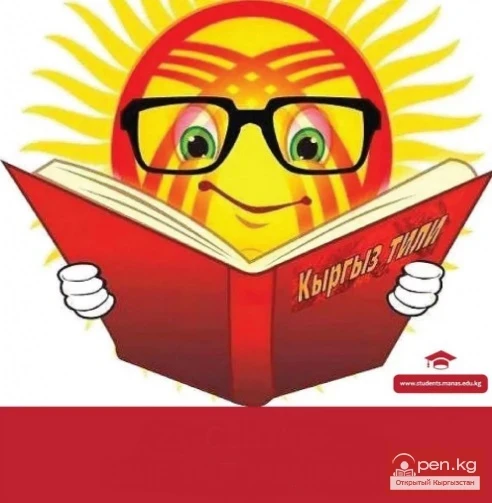
Moods and Function Words in the Kyrgyz Language
Moods in the Kyrgyz Language The Kyrgyz language presents the following moods: imperative,...

Numerals, Mood, Verb in the Kyrgyz Language
Numeral Names. Cardinal numerals can be simple (1 - bir, 2 - eki, 3 - üç, 4 - dört, 5 - bet, 6 -...

Types of Insects Excluded from the Red Book of Kyrgyzstan
Insect species excluded from the Red Data Book of Kyrgyzstan Insect species excluded from the Red...

Poet, Prose Writer Tash Miyashev
Poet and prose writer T. Miyashev was born in the village of Papai in the Karasuu district of the...
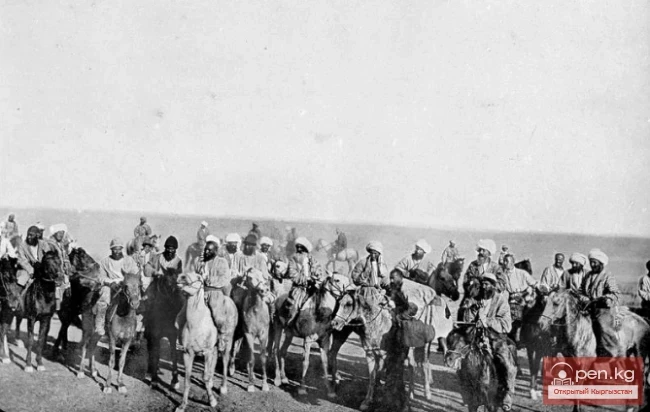
The Uprising Led by Mamyr Mergenov in the Spring of 1873
Mamyr Mergenov — a man of humble origins The scattered uprisings of the rebels covered new areas...
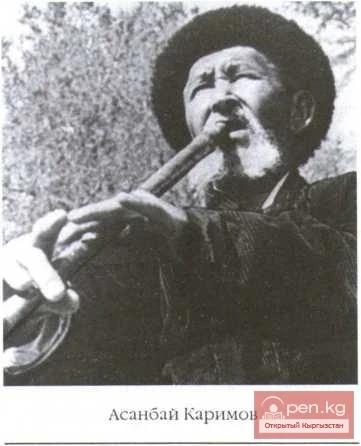
Asanbay Karimov (1898—1979)
Asanbay Karimov (1898— 1979) — an outstanding folk professional choorchu. A self-taught musician,...

Weather Prophet Atay from Jumgal
Among the folk weather predictors, Atai from Jumgal was known for his observations of cloud...
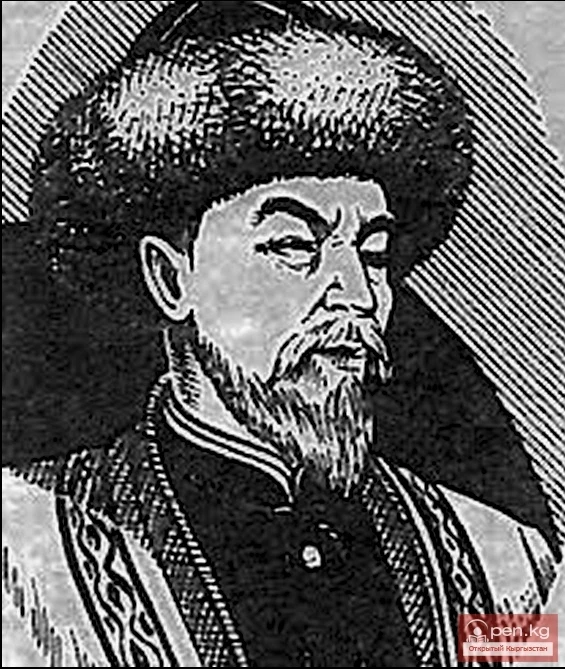
Kaligul BAI UULU
Kalygul BAI UULU (1785-1855) - a thinker, a representative of the philosophical movement of...

Prose Writer Duyshen Sulaymanov
Prose writer D. Su laymanov was born in the village of Jilaymash in the Sokuluk district of the...

The Poet Baidilda Sarnogoev
Poet B. Sarnogoev was born on January 14, 1932, in the village of Budenovka, Talas District, Talas...
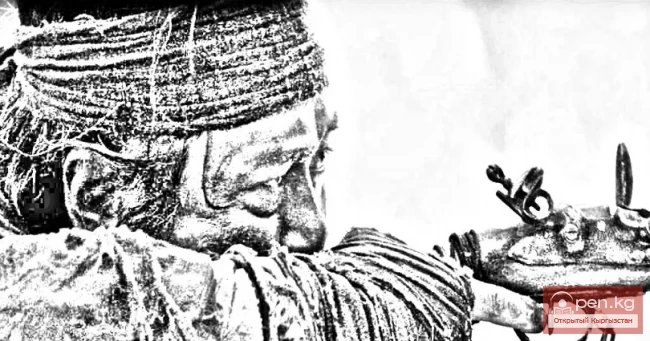
The performance of Jetim Khan and Mamyr Mergenov in the spring of 1878.
The Rebellion of Jetim Khan and Mamyr Mergenov The uprising, which took place in June-July in...

Prose Writer, Critic Dairbek Kazakbaev
Prose writer and critic D. Kazakbaev was born on June 20, 1940, in the village of Dzhan-Talap,...
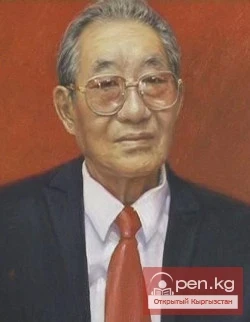
Poet, Prose Writer Isabek Isakov
Poet and prose writer I. Isakov was born on September 1, 1933, in the village of Kochkorka,...
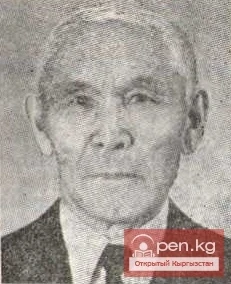
Literary scholar, prose writer, poet Dzaki Tashtemirov
Literary scholar, prose writer, poet Dz. Tashtemirov was born on October 15, 1913—October 7, 1988,...
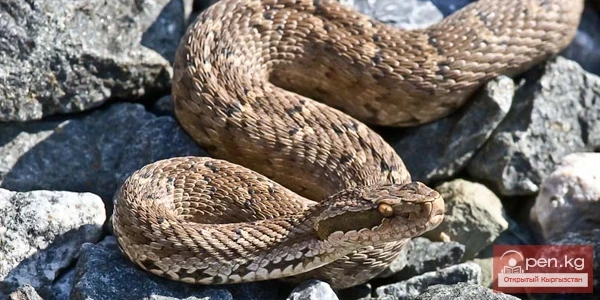
Man and Nature in Oral Folk Art
The relationship of humans to nature, animals, and plants is determined not only by their natural...
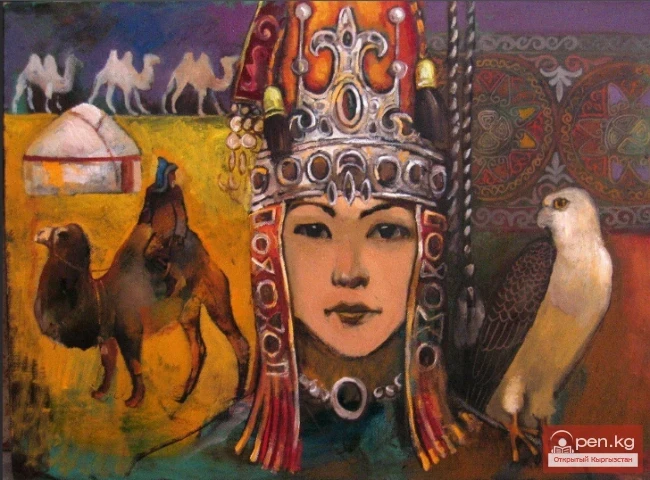
Alimkan - Daughter of the Wise Shakirbay
THE LEGACY OF SULAYMANBAY Once upon a time, there lived a man named Sulaymanbay. He had one and...

Togolok Moldo on Natural Phenomena
The objects and phenomena of the material world are diverse, and accordingly, the interactions and...

Improvisational Poet Alymkul Usenbaev
Akin-improviser A. Usenbaev was born in 1894 and died on August 2, 1963, in the village of...

The Poet Sooronbay Jusuyev
Poet S. Dzhusuev was born in the wintering place Kyzyl-Dzhar in the current Soviet district of the...
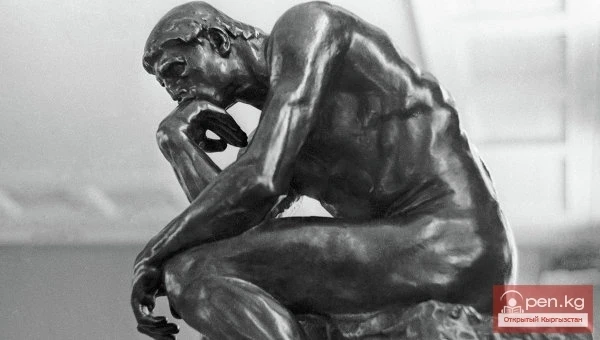
Ethical Concepts and Etiquette in the Works of Kyrgyz Thinkers
The spiritual culture of the Kyrgyz people, expressed in the philosophical and poetic creativity...
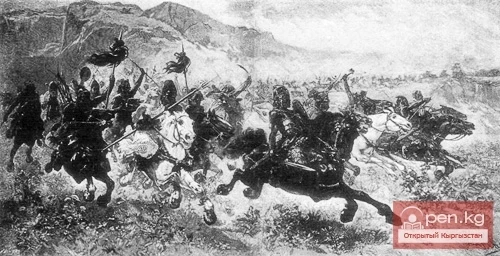
Military Forces of the Kyrgyz in the 18th - Early 20th Century
Since the Kyrgyz did not have their own state formation during the period in question, there is no...
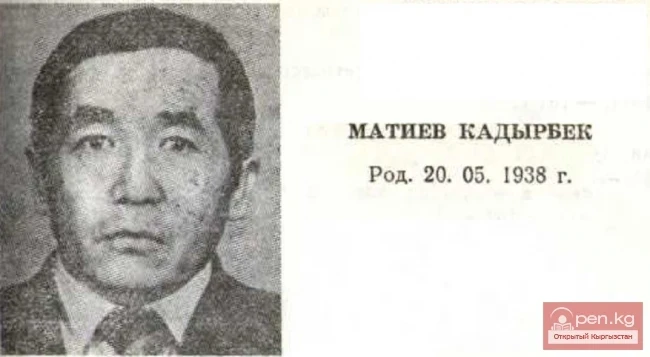
Critic, Literary Scholar Kadyrbek Matiyev
Critic, literary scholar Kadyrbek Matiev was born in the village of Ak-Took in the Suzak district...
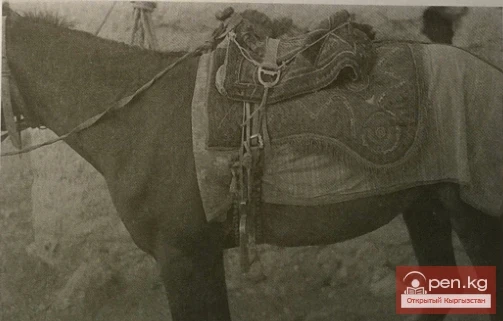
The Horse Tack of the Kyrgyz in the 18th-20th Centuries.
Horse Equipment. The horse harness kit, known as jabdyk (also abzel in southwestern regions, am...
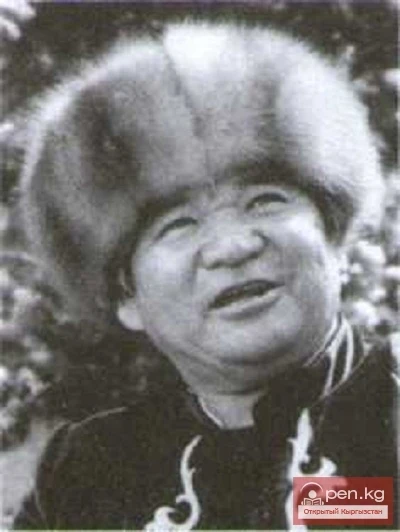
Estebes Tursunaliev
Estebes Tursunaliev (born 1931) — akyn-improviser, People's Artist of the USSR (1988),...

Tourist Area Management Program
The project "USAID Business Development Initiative" (BGI), within the tourism...

Poet, Playwright J. Sadykov
Poet and playwright J. Sadykov was born on October 23, 1932, in the village of Kichi-Kemin, Kemin...
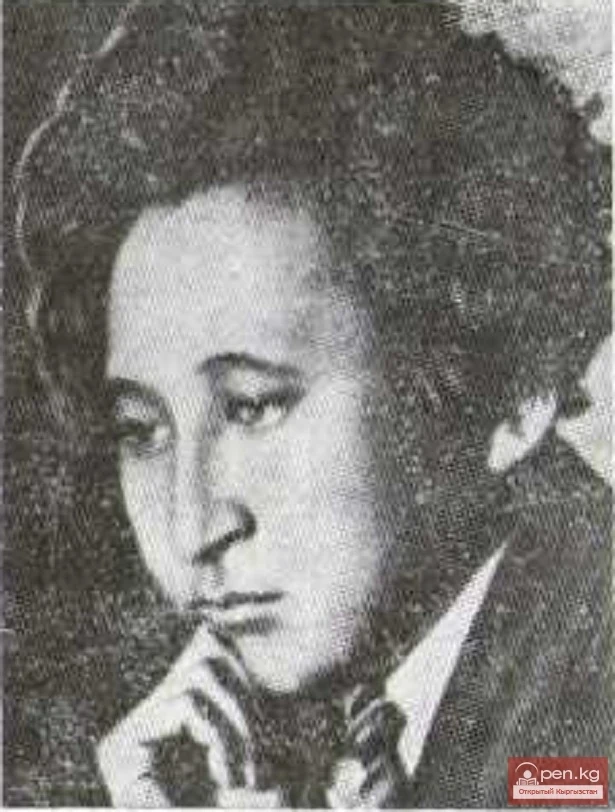
Poet, playwright Dzhomart Bokonbaev
Poet and playwright J. Bokonbaev was born on May 16, 1910 — July 1, 1944, in the village of...
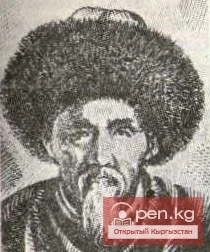
The poet-writer Togolok Moldo (Bayymbet Abdrakhmanov)
Akin-writer Togolok Moldo was born on June 17, 1860—January 4, 1942, in the area of Kurtka (now...
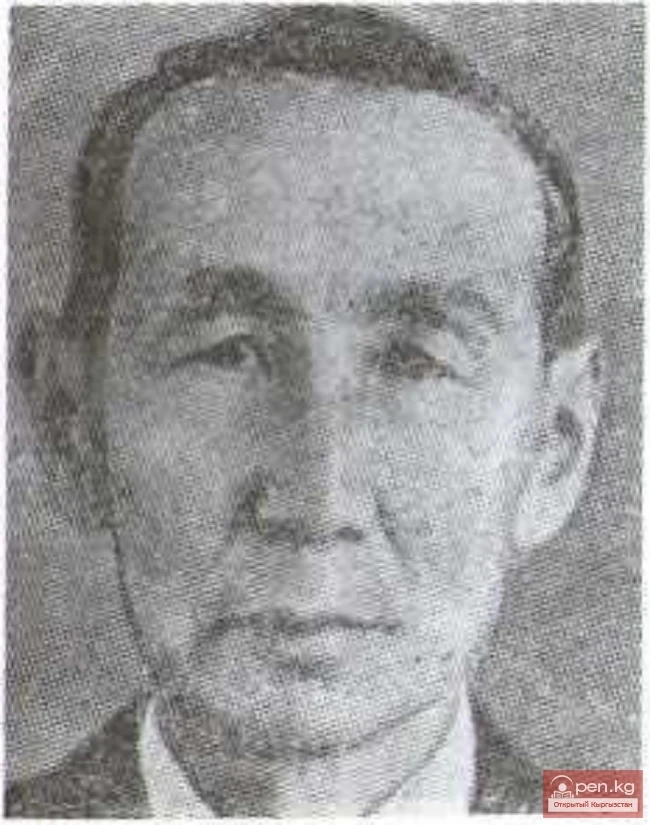
Prose Writer Kasymaly Bayalinov
Prose writer K. Bayalynov was born on September 25, 1902—September 3, 1979, in the Kotmaldy area...

Rain and Storms in the Works of Togolok Moldo
Understanding the Formation of the Universe and the Development of Living Organisms and Plants by...
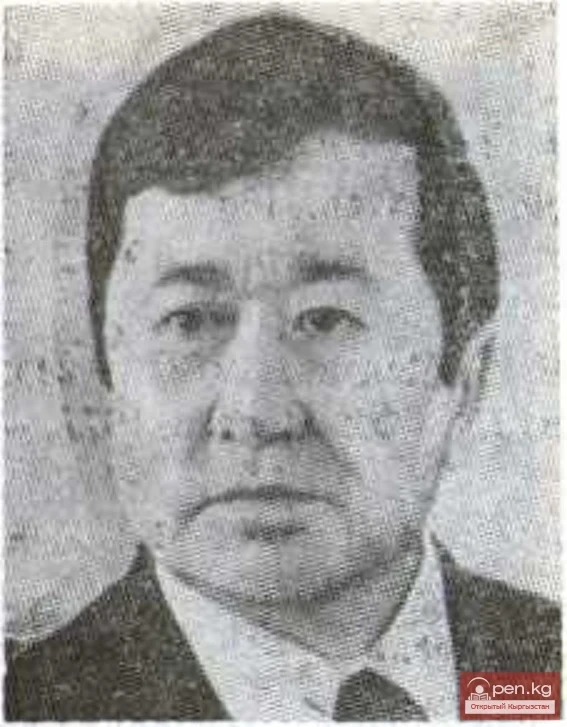
Critic, Literary Scholar Keneshbek Asanaliev
Critic and literary scholar K. Asanaliev was born on June 10, 1928, in the village of Sokuluk (now...
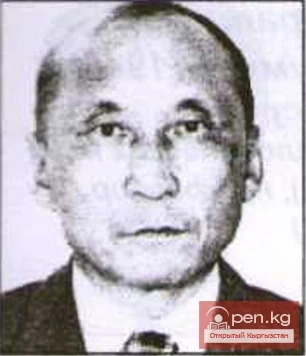
Omuraliyev Ashymkan
Omuraliyev Ashymkan (1928), Doctor of Historical Sciences (1975), Professor (1977) Kyrgyz. Born in...
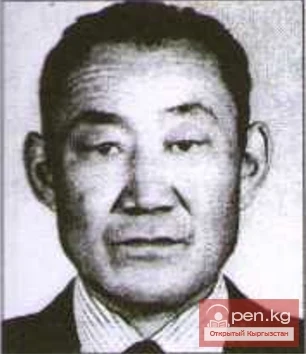
Osmonov Anvar Osmonovich
Osmonov Anvar Osmonovich (1941), Doctor of Veterinary Sciences (2000) Kyrgyz. Born in the village...

Poet, Prose Writer Medetbek Seitaliev
Poet and prose writer M. Seitaliev was born in the village of Uch-Emchek in the Talas district of...
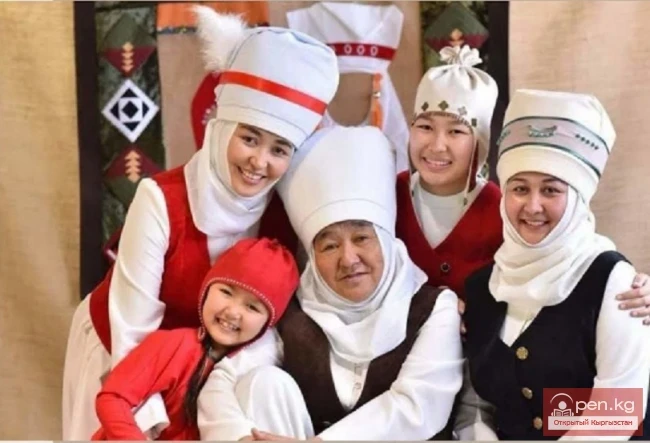
Social Hierarchy of Kyrgyz Women
SOCIAL HIERARCHY OF WOMEN Reliable information about the social structure of the Kyrgyz people can...
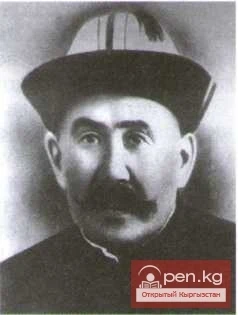
Said Bekmuratov (1901—1966)
Said Bekmuratov (1901—1966) — an outstanding kyl kyakist of the 20th century. He was born in the...
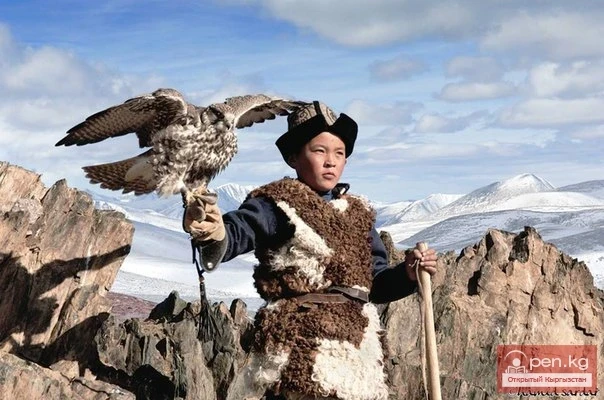
The Legend of Kuu-Kumpa
There is a legend among the people. The itelgi and the berkut were enemies, as the berkut often...
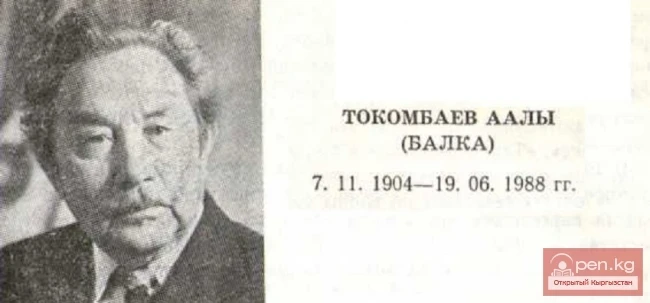
Poet, Prose Writer, Playwright Aaly Tokombaev (Balky)
Poet, prose writer, playwright A. Tokombaev was born in the village of Kainy in the present-day...
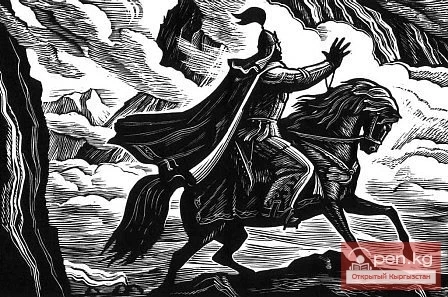
Ancient Information about the Structure and History of the Earth's Surface
If we consider events spanning a longer geological time, the ideas expressed in the epic...
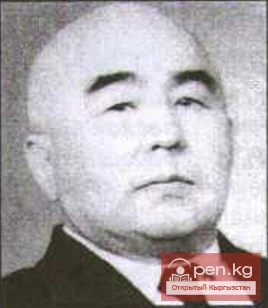
Zhakypov Ybrai
Zhakypov Ybrai (1918), Doctor of Philological Sciences (1967), Professor (1969) Kyrgyz. Born in...
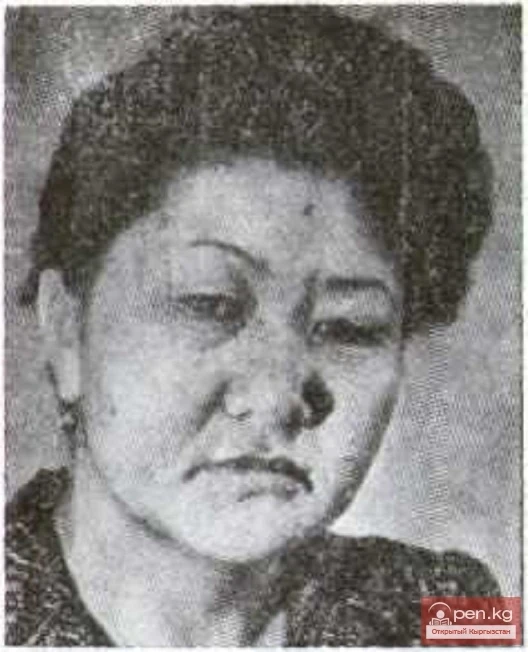
The Poet Alymkan Degenbaeva
Poet A. Degenbaeva was born on May 12, 1941, in the village of Belovodskoye, Moscow District,...
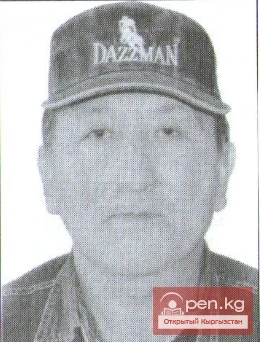
Sydykov Arstanaaly Arstambekovich
Sydykov Arstanaaly Arstambekovich Painter. Born on February 2, 1952, in the village of Kerben,...
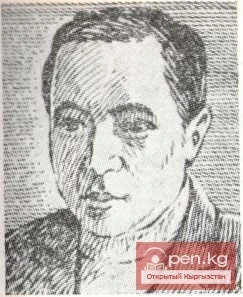
Critic, Literary Scholar Kalim Rakhmatullin
Critic and literary scholar K. Rakhmatullin was born in 1903 in the city of Tokmak, now in the...
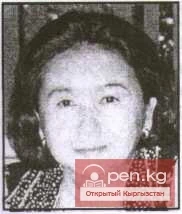
Dzhumanazarova Asylkan Zulpuqarovna (1952)
Dzhumanazarova Asylkan Zulpukarovna (1952), Candidate of Chemical Sciences (1982), Professor...
